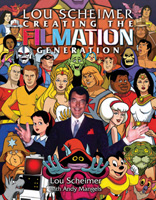 TrekCore recently announced news of a new book which delves into Star Trek‘s Animated Series. Creating the Filmation Generation is penned by none other than Filmation Founder Lou Scheimer with the help of popular Star Trek fiction author Andy Mangels. The book takes readers on a history tour of Filmation and its huge catalogue of animated shows including a significant portion dedicated to Star Trek: The Animated Series.
TrekCore recently announced news of a new book which delves into Star Trek‘s Animated Series. Creating the Filmation Generation is penned by none other than Filmation Founder Lou Scheimer with the help of popular Star Trek fiction author Andy Mangels. The book takes readers on a history tour of Filmation and its huge catalogue of animated shows including a significant portion dedicated to Star Trek: The Animated Series.
I caught up with Andy Mangels last month to chat to him about the new book and the forgotten history of Star Trek: The Animated Series.
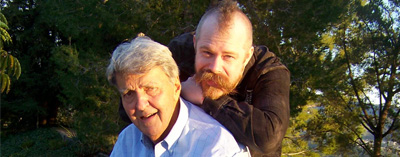
Andy Mangels: Creating the Filmation Generation Interview
TrekCore: The original concept for the show, the animated Star Trek, dealt with a group of kids on a ship that wasn’t the Enterprise. This is officially how they were going to relaunch the Star Trek franchise. In your expert opinion, would you say it was a good idea and do you think William Shatner and Leonard Nimoy would have been onboard with this concept (especially Nimoy who originally wasn’t going to be a part of the aborted Star Trek Phase II series)?
Andy Mangels: The original concept for the animated series was going to be while the regular series was on the air, so, you could watch the show at nighttime and then again on Saturday mornings – had the original series not been cancelled, they would have both been happening concurrently. The original cast would have been involved, no doubt, but, the original concept was to have a young teenage crew that needed older crewmembers to mentor them and that’s what the Enterprise crew was going to do. It was really kind of a revolutionary and clever idea about how to continue the show but make it accessible to younger audiences, but, still make it Star Trek. If you look at the art of what Star Trek later did, it’s Wesley Crusher… it’s exactly what Roddenberry later did with Wesley Crusher.
One of the things the book talks about is how long they were working on the Star Trek Animated Series and a lot fans don’t really realize how long they were working on it. They actually first talked about doing an animated Star Trek series while the original series was still on the air and they actually entered into a deal before season 3, so, they were actively working with Roddenberry, the cast, and the writers. When the show got cancelled… it didn’t go anywhere for awhile. Then Star Trek went into reruns and became a syndication success, there began to be Star Trek conventions and fandom really kind of rose to its heights and that’s when they were able to come back and say “Let’s do another Star Trek and let’s do it in animation where we won’t have a budget concern, we can literally show anything we want, we can show any kind of space happening, and kind of planetary happening, we can really go where no man has gone before because we don’t have a special effects budget to worry about. The only budget they had was the animation budget and the voice actor budget.”
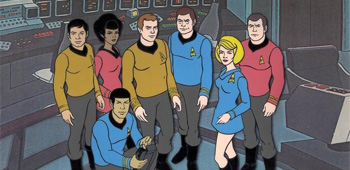
Star Trek’s Animated Series originally ran for 22 episodes and was broadcast between 1973-1974.
TrekCore: You look at some of the shows that were part of the “Disney Afternoon” in the late 1980s and early 1990s which had one season runs usually with a new episode airing every day. Was there every any consideration by Filmation to take this route with Star Trek?
Andy Mangels: They actually had talked about that with Gene Roddenberry and… he loved the Animated Series… and he made in his later years some comments about it that were few and far between that were pretty derogatory about it because for the most part, the Animated Series was the live action series translated to animation. D.C. Fontana was the story editor, (Samuel) Peeples, who wrote the pilot for the original series (“Where No Man Has Gone Before”) I believe, wrote the pilot for the animated series, David Gerrold who wrote the tribbles episode (“The Trouble With Tribbles“) wrote a sequel for the Animated Series (“More Tribbles, More Troubles”). Almost everybody who worked on the Animated Series had been people who worked on the Original Series, so… the concern was that they knew that kids were going to watch the Animated Series anyway; the challenge was to make it appealing to the adults who watched the Original Series. That’s why the show is adult as it is… it is the first animated show to show the death of a pet… Spock’s sehlat dies in an episode… and that’s major; for that to happen on a Saturday morning show is seismic! It changed everything for Saturday morning television.
No one treated the Animated Series as if it were a children’s show… they treated it as an animated show. They didn’t dumb it down; they didn’t have any goofy animal sidekicks, they didn’t have any chase scenes, they didn’t have any silly puns in their names; for all intents and purposes, what they did on the Animated Series could have been done on the Original Series, had they had the budget. I will say there were a few episodes that were goofy… a giant inflatable Enterprise (“The Practical Joker“) being a prime example, but, there were a number of original episodes that had their share of goofiness, as well… *cough* “Spock’s Brain” *cough*…
When Gene Roddenberry was developing The Next Generation, he and Lou Scheimer (who had remained friends since the Animated Series finished) had actually talked about developing a new animated series that would be set during the TNG time period. When Gene passed away, it didn’t really go anywhere and the reason it didn’t really go anywhere is because Gene was actively involved in the development of the Animated Series… Filmation had a deal with him to do the show and the deal was that the network and Paramount had no power in the series. All they could do was say “Yes, you can air this” or “No, we won’t air this.”
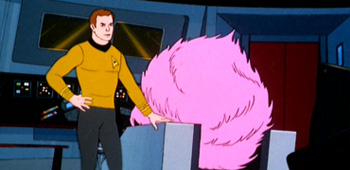
Andy Mangels, co-author of “Creating the Filmation Generation” recalls how Star Trek’s Animated Series was closely linked with the Original Series and featured writers such as David Gerrold who continued his famous tribbles story in “More Tribbles, More Troubles“.
TrekCore: It’s interesting to hear all this about Roddenberry’s involvement in the show because he famously decreed during the second season of The Next Generation that the Animated Star Trek was “not canon.” Now, based on everything you’ve said, how can Roddenberry be so appreciative of what the series accomplished and yet write it off so easily later?
Andy Mangels: It’s very easy for writers to misconstrue things or for people to get up on a pulpit at a convention and say things they might not actively feel and there are also some pressures that come into play in Hollywood. At one point, Gene Roddenberry was against the idea of having gay characters on Star Trek and then towards the end, close to when he passed away, he changed his mind and was going to have gay characters on Star Trek and then after he passed, that went by the wayside. Gene’s opinion during the majority of his time when the Animated Series was going was always very positive. And it’s interesting to note that although at one point he said that the Animated Series was not going to be canon, they are definitely canon now because elements of the series have cropped up all throughout Enterprise, they showed up in Deep Space Nine, they showed up in other stuff… you can’t read a Star Trek book these days (although people argue THOSE aren’t canon) without some kind of reference to the Animated Series, there’s references to it all over the place. You know, James Tiberius Kirk… “Tiberius” didn’t exist until the Animated Series said that was his middle name and Gene Roddenberry certainly allowed James Tiberius Kirk to stand. So, yeah, it was one of those things that when he made that comment, who knows, maybe he was having a bad stomach day or maybe at that one point in time, he didn’t like the series. Does that mean he always didn’t like the series… what does that mean in the grand scheme of things… I don’t know.
There were people who worked in Gene’s office who were very picky about what they considered to be canon and not canon and what they would allow to appear in the books and the comics and sometimes they were controlling the answers… not controlling what came out of Gene’s mouth, but, if somebody turned something in to Gene’s office, sometimes the answer wasn’t coming from Gene.
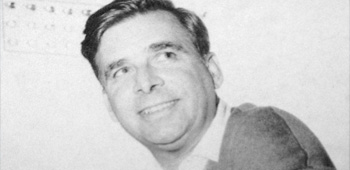
Andy Mangels recalled how Gene Roddenberry had actively talked with Lou Scheimer about developing a new Animated Series during the Next Generation years, however his untimely passing meant the idea never had chance to reach fruition.
TrekCore: You had mentioned Filmation’s desire back in the early seasons of The Next Generation to do another animated series… one could make the argument that the Animated Series we know of today “resurrected” the Star Trek franchise. Do you feel that with Enterprise now being off the air for seven years that history might repeat itself and a new animated Star Trek could bring the franchise back to television?
Andy Mangels: I think it’s viable. Star Wars: The Clone Wars, while I don’t watch it, is pretty popular… it does well in the ratings and on DVD and it’s a way for people to watch Star Wars every week. I think that if a new animated Star Trek, if it were done with care with people who actively cared about the Star Trek experience, about what it meant, what it became in its later years, that it wasn’t a show for kids, but, for adults… if they approached it from that angle, I think it’d be successful. It’s unfortunate that it probably won’t happen because Hollywood is so fixated on the bottom line that they won’t take chance and they’ll look at it and say “You know what, we know the last movie worked, so, we’ll only make movies.” They won’t say “Let’s do a movie of the week” or “Let’s do a new series or a mini-series to see how it goes.” Look at Battlestar: Galactica… Sci-Fi Channel took a chance when they relaunched that and then they did Caprica and now they’re doing this mini-series that they’re releasing on the Internet – that’s risk taking… let’s try something new and see how the fans react and see if it actively brings us attention and money and ratings… I don’t think the networks are ready to do that, and that’s unfortunate because Paramount and CBS are tied together now – they could easily, you could have a CBS Star Trek on there now but I don’t think they will because they can’t look beyond the bottom line, they’re just thinking “We don’t know if it’ll work or not, so, we’ll just stick with the movies.”
***
Creating the Filmation Generation is available to buy now from TwoMorrows Publishing. Be sure to re-visit TrekCore soon for our review and some exclusive previews of the book!
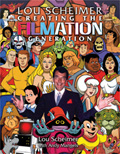 |
Buy Creating the Filmation Generation |
